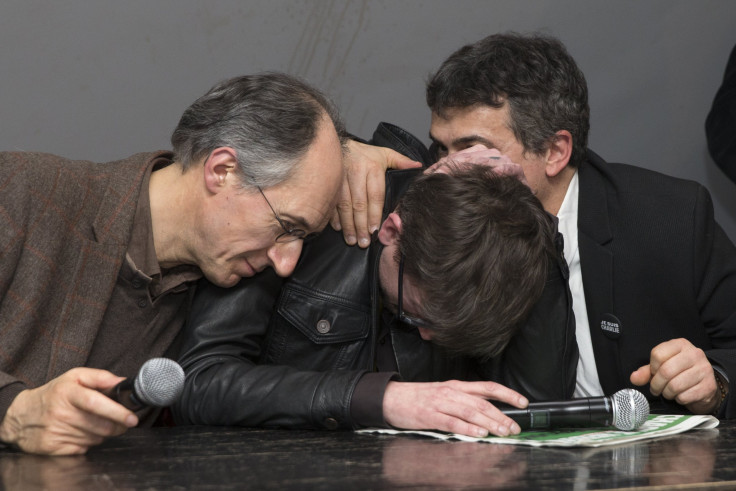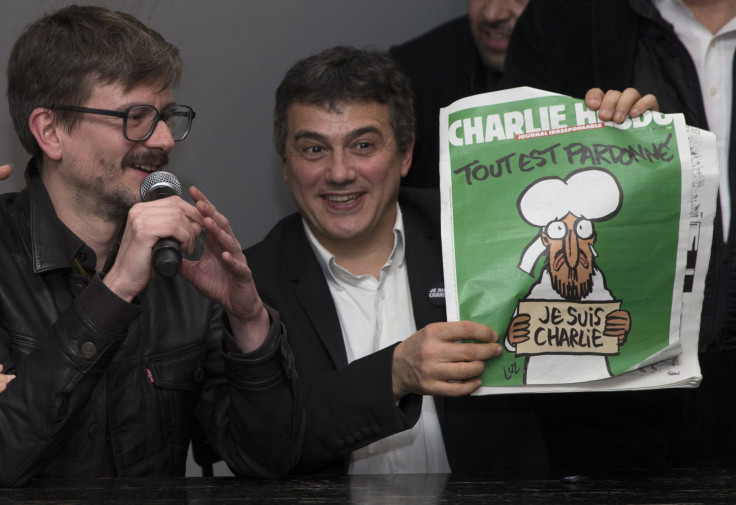Le Canard Enchaine, Major French Satirical Weekly, Received Death Threats After Charlie Hebdo Attack

Le Canard Enchaine, France’s leading satirical weekly, said it had received death threats a day after gunmen killed 12 people at the Charlie Hebdo office in Paris last week, even as the latter's latest issue hit newsstands in Paris on Wednesday, with a new caricature of the Prophet Muhammad on the cover.
News stands open in Paris with new #CharlieHebdo
— Alessandria Masi (@AlessandriaMasi) January 14, 2015Le Canard Enchaine said, in its Wednesday issue, that it had received an e-mail on Jan. 8, with a message stating, “It's your turn.” The sender also said that journalists working for the weekly would be slashed to pieces “with an axe,” unlike victims of the Charlie Hebdo attack, who were killed with an automatic rifle.
“Given the context, surveillance was strengthened,” and police are conducting an investigation, the paper wrote, according to Agence France-Presse (AFP).
Tomorrow's front page @canardenchaine Cabu: "Come on lads don't let it get (shoot) you down!" #JeSuisCharlie pic.twitter.com/yiWb8VWRul
— JC (@jclanoe) January 13, 2015Founded in 1915, Le Canard Enchaine is considered France’s most popular satirical weekly with a circulation of nearly half a million. The paper is known for its take on politics and business, as well as its investigative reporting of scandals. The weekly also features jokes and cartoons, AFP reported.
Le Canard Enchaine’s announcement comes at a time when Charlie Hebdo's latest issue drew criticism as well as threats of more violence. Charlie Hebdo's latest cover shows a weeping Muhammad holding a "Je suis Charlie" sign, which translates to “I am Charlie.” Above the cartoon, the words translate to, “All is forgiven."

Calls for more violence against Charlie Hebdo grew on jihadist websites, according to the U.S.-based SITE Intelligence Group, which monitors radical postings on the Internet, The Washington Post reported.
Dar al-Ifta, one of Egypt's top Islamic authorities for religious edicts, warned the paper against publishing more cartoons of the prophet, and described the new cover as “unjustifiably provocative to the feelings of a billion and a half Muslims worldwide who love and respect the Prophet,” The Post reported.
Meanwhile, Charlie Hebdo said Tuesday that the turnout of nearly a million people during Sunday’s rally in Paris was larger “than for Mass,” The Associated Press reported.
“For the past week, Charlie, an atheist newspaper, has achieved more miracles than all the saints and prophets combined,” Charlie Hebdo said in the lead editorial of its latest edition. “The one we are most proud of is that you have in your hands the newspaper that we always made.”
© Copyright IBTimes 2024. All rights reserved.






















